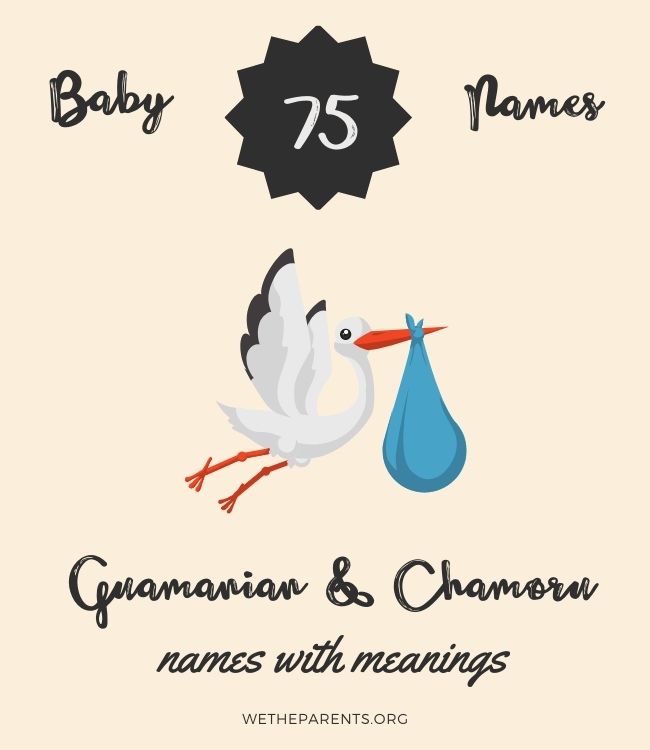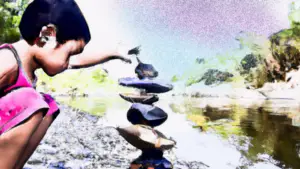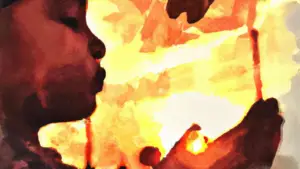The beautiful Micronesian island territory of Guam was first settled more than 3,500 years ago. Today, indigenous Guamanians, known as the Chamoru or Chamorro people, continue to enjoy the maritime traditions and occupations long common to the area, engaging in traditional customs influenced by Mexican, Spanish, American, Filipino, and Micronesian cultures.
Guamanian and Chamoru names often reflect on strength, intelligence, battle-worthiness and other virtues, and their unique backstory is certainly worth a read.
Ready to explore?
A brief history of Guamanian and Chamoru names
Though they are often beautiful when spoken, many historical Chamoru names have meanings referring to struggle, strife, pain, and grief. Interestingly, these names were often chosen or given as secondary to Spanish Baptismal names, acting more as a nickname or middle name than a first name or surname.
The difficulty and disparity referenced in these chosen names was likely a product of Guam’s possession by Spain during the Spanish-American War, which resulted in vicious conflict between the indigenous Chamoru and the invading Spaniards beginning in 1672 and not ending until the end of the 17th century.
A maritime people, the Chamoru were forbidden from nearing the sea by their Spanish overlords, depriving them of the food and resources central to their survival. War, the severe weather common to the island territory, and new European diseases ravaged the populace, reducing the total Chamoru population to approximately 10% of its former size by the beginning of the 18th century.
While we’ve strived to choose names with more bright and positive meanings for this list, the virtues of strength, bravery, and intelligence and an association with the sea and maritime culture remain clear in the meanings of many Chamoru and Guamanian names.
Male baby names
- Abi – To sustain or provide for
- Actassi – The sharing of the sea
- Atugud – Propping one another up
- Ayuhan – That is all
- Babaota – Battle flag
- Bendison – A man who is blessed
- Buyugo – One who uses flattery
- Cadassi – To possess something with the sea
- Canaho – I am suspended
- Charfaulus – Something that is rough
- Comemaulig – It is improving
- Felu – Blade
- Gamomo – A man who loves battle
- Godo – One who is entrapped
- Guaiya – Love
- Guatapang – Guard on alert
- Halomtano – Forest or jungle
- Hirao – Emotion or affection
- Hochocguafiña – His fire is extinguished
- Husto – A man who is righteous and just
- Magahet – One who is truthful and honest
- Mahogaa – A thirsty man
- Mahoyu – A tough, strong man
- Maipe – Hot and fiery
- Mamaisa – A man who prefers solitude
- Mantanoña – Being his land
- Matapang – A man who is brave and spirited
- Menhalom – An intelligent and smart man
- Nahagua – One who draws blood
- Napo – Surf or wave
- Napona – His wave
- Neno – An affectionate Chamorro term for a male child
- Poyo – A young cockerel or chicken
- Quehofa – One who is striving to keep what is his
- Quetogua – One who strives to strike down or conquer
- Sagualahe – Living man
- Saguaña – His staying, his living
- Suetto – A man who is free
Female baby names
- Agana – A Chamorro term for blood which is also a popular female name
- Agñasiña – Mighty for one another
- Amista – Loyalty and fidelity
- Añaña – She punishes
- Atisa – Something which becomes brighter or increases
- Attau – A woman who hides herselfCamarin – One who shelters or protects
- Chamorra – A female member of the Chamoru people
- Chirika – A common bird
- Chubasca – Stormy sea
- Erensia – Heritage
- Fresca – Cool, fresh
- Gabi – Cut, slash
- Godonga – A woman who is entrapped
- Hanomtano – Water land
- Hanumta – Our water
- Ina – Illumination, Sun, Strength, Mother, Ruler
- Inina – A glimmer of light
- Irao – A version of the name Hirao which means affection or love
- Isab – In the Chamoru language, the word for ‘rainbow’
- Kamia – A woman who is like a flower
- Langit Humasa – She is alone in heaven
- Langith – A version of the name Langit which refers to Heaven, Paradise, or the sky
- Latasi – Praise
- Maiana – Chamoru word for flower
- Mantanga – One who was wished for
- Monaeka – A doll
- Naile – A female who is tall and slender
- Paharita – Small bird
- Pulan – Moon
- Pution – Star
- Quesamaiña – One who strives for her children
- Senora – In the Chamoru language, the word for ‘woman’
- Sirena – In the Chamoru language, the word for ‘mermaid’
- Suette – A woman who is lucky or has good fortune
- Tadlahi – One without a man
- Taitagui – Not her way







